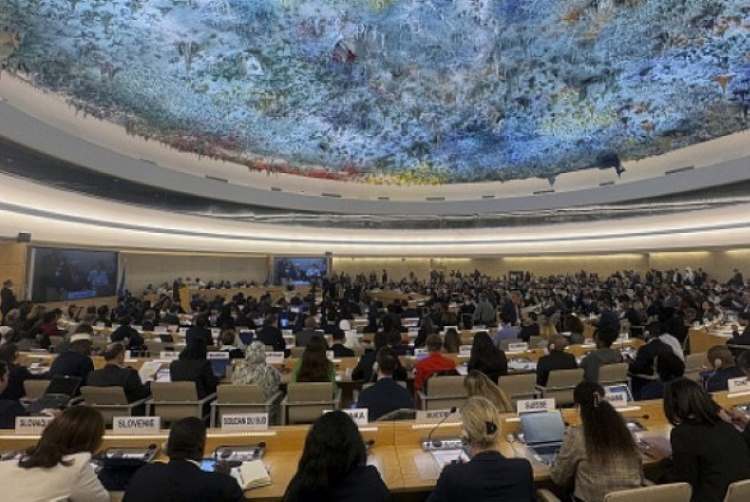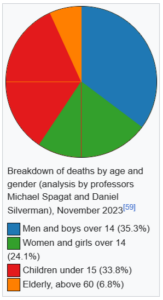
Gaza Strip is in the grip of a massive humanitarian crisis. The scars of the recent conflict with Israel run deep, leaving infrastructure shattered and essential supplies dwindling. This, coupled with the ongoing blockade, has plunged Gaza into a desperate struggle for survival. The crisis has led to severe food insecurity, healthcare collapse, and mass displacement.
The situation in Gaza is critical, with the entire population facing “crisis or worse” levels of food insecurity. Nearly 15% are in “catastrophic” conditions, while 40% experience “emergency” levels of hunger. The blockade has severely restricted access to basic supplies, including food, water, and fuel. This has led to depleted food stocks, destruction of bakeries, and a significant reduction in aid deliveries.
READ I Garden City to urban hell: Bengaluru battles cholera surge amid water crisis

Reports indicate that the north of Gaza is already experiencing famine-like conditions, with the threat of famine spreading across the entire region. The situation has been exacerbated by the recent conflict, which has not only destroyed infrastructure but also halted relief operations, including those of major humanitarian organisations like the World Central Kitchen.
The United Nations Relief and Works Agency for Palestine Refugees in the Near East (UNRWA) plays a pivotal role in providing humanitarian assistance in Gaza. Despite its critical services, UNRWA faces significant funding challenges, especially after the recent accusations against its employees and subsequent funding suspensions by key donors. This situation threatens the continuity of essential services, including education, healthcare, and emergency food assistance. The international community’s support for UNRWA is vital to sustain its operations and prevent a further deepening of the crisis.
Collapse of healthcare system
The healthcare system in Gaza is on the brink of collapse. Hospitals struggle to function due to limited capacity, power outages, and a lack of essential medical supplies and fuel for generators. Disease outbreaks pose a growing threat, with only a few maternity hospitals remaining operational, overwhelmed with patients. The ongoing violence and displacement have made it nearly impossible to provide adequate healthcare, especially to vulnerable groups like pregnant women and newborns.
The conflict in Gaza has devastating effects on education, with over 600,000 school-aged children losing access to learning due to the destruction or use of schools as shelters. The interruption of education not only impacts the immediate well-being of children but also has long-term consequences for the region’s future. Restoring educational services is crucial to provide a sense of normalcy and hope for the younger generation amid the ongoing crisis.
Massive displacement
Approximately 1.7 million people, or about 75% of Gaza’s population, are internally displaced, seeking refuge in overcrowded shelters and informal settlements with inadequate sanitation and clean water facilities. This displacement not only exacerbates the humanitarian crisis but also makes it more challenging to deliver aid and provide essential services.
The psychological toll of the conflict and humanitarian crisis on Gaza’s population, especially children, is immense. The constant threat of violence, loss of family members, displacement, and living in overcrowded and unsanitary conditions contribute to widespread mental health issues. Organisations like the International Rescue Committee (IRC) are providing essential mental health and psychosocial support, but the needs far exceed available resources. Addressing the mental health crisis is essential for the long-term recovery of the Gazan population.
Origins of the humanitarian crisis
The current crisis is primarily attributed to the Israel-Hamas conflict, which has caused extensive damage to Gaza’s infrastructure and disrupted supply chains. Furthermore, the Israeli blockade has significantly restricted the movement of goods and people into and out of Gaza, compounding the difficulties in accessing essential resources.
International agencies and NGOs are providing humanitarian aid, but the delivery is hampered by the ongoing conflict and blockade. The United Nations and various relief organisations emphasise the need for a ceasefire and the unconditional release of hostages to scale up aid delivery effectively. However, access to areas in need is often denied or restricted, and the safety of aid workers is a growing concern, with reports of attacks and casualties among relief personnel.
Need concerted global action
The humanitarian crisis in Gaza raises serious legal and human rights concerns. The blockade and military actions have been criticised for potentially violating international humanitarian law, including the prohibition of starvation as a method of warfare. The international community, including legal and human rights organisations, calls for accountability and adherence to international law to protect civilian lives and ensure the delivery of humanitarian aid.
The crisis in Gaza is likely to worsen without a sustained international effort to address the underlying causes, including the conflict and the blockade. Urgent action is required to ensure the free flow of humanitarian aid, rebuild essential infrastructure, and find a long-term solution to the Israeli-Palestinian conflict.
The international community cannot stand idly by as a man-made crisis unfolds. Increased diplomatic efforts are crucial to achieve a lasting ceasefire and dismantle the blockade. Unimpeded access for humanitarian aid is essential to alleviate immediate suffering. Only through a concerted global response can Gaza begin to rebuild and hope for a more secure future.
